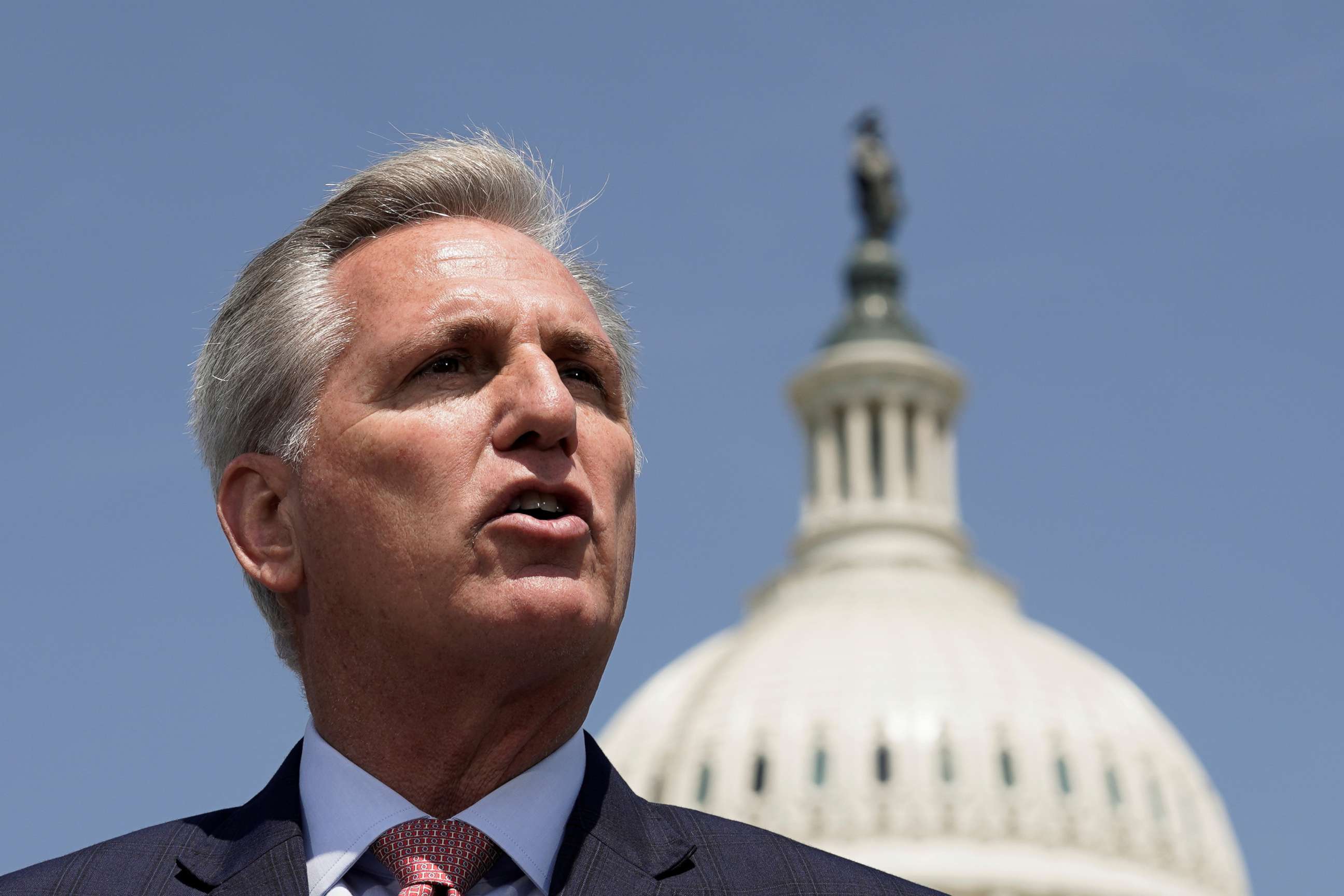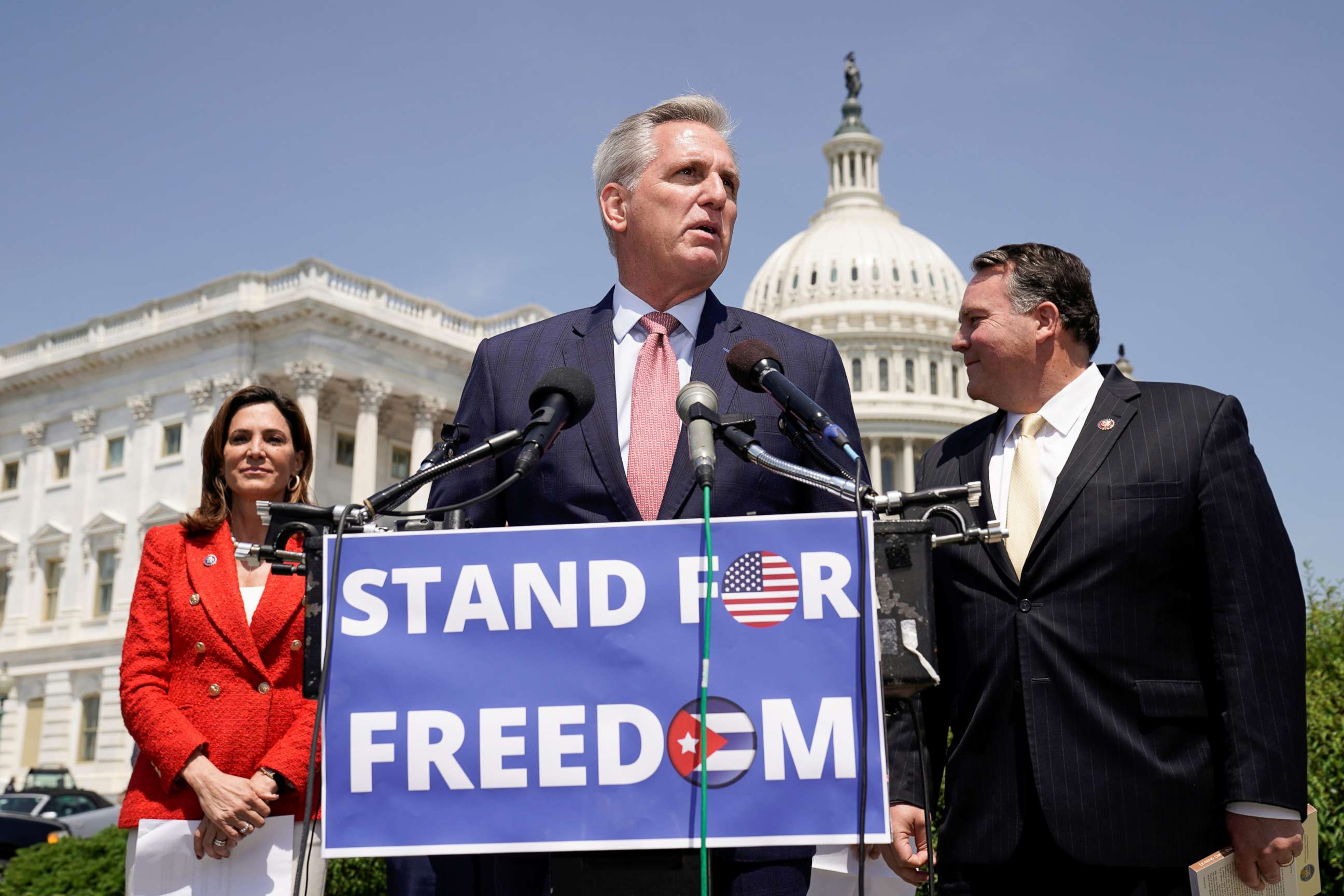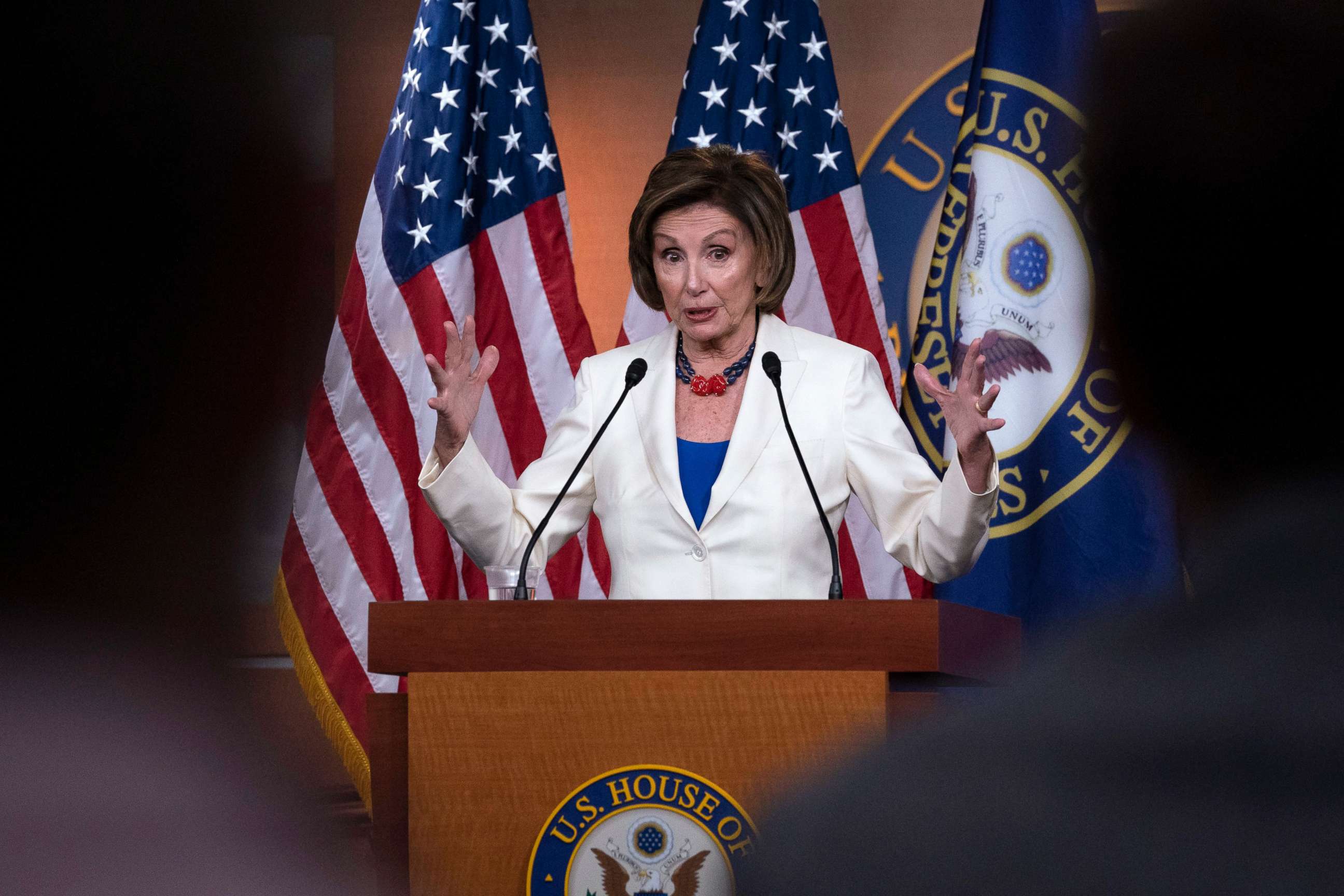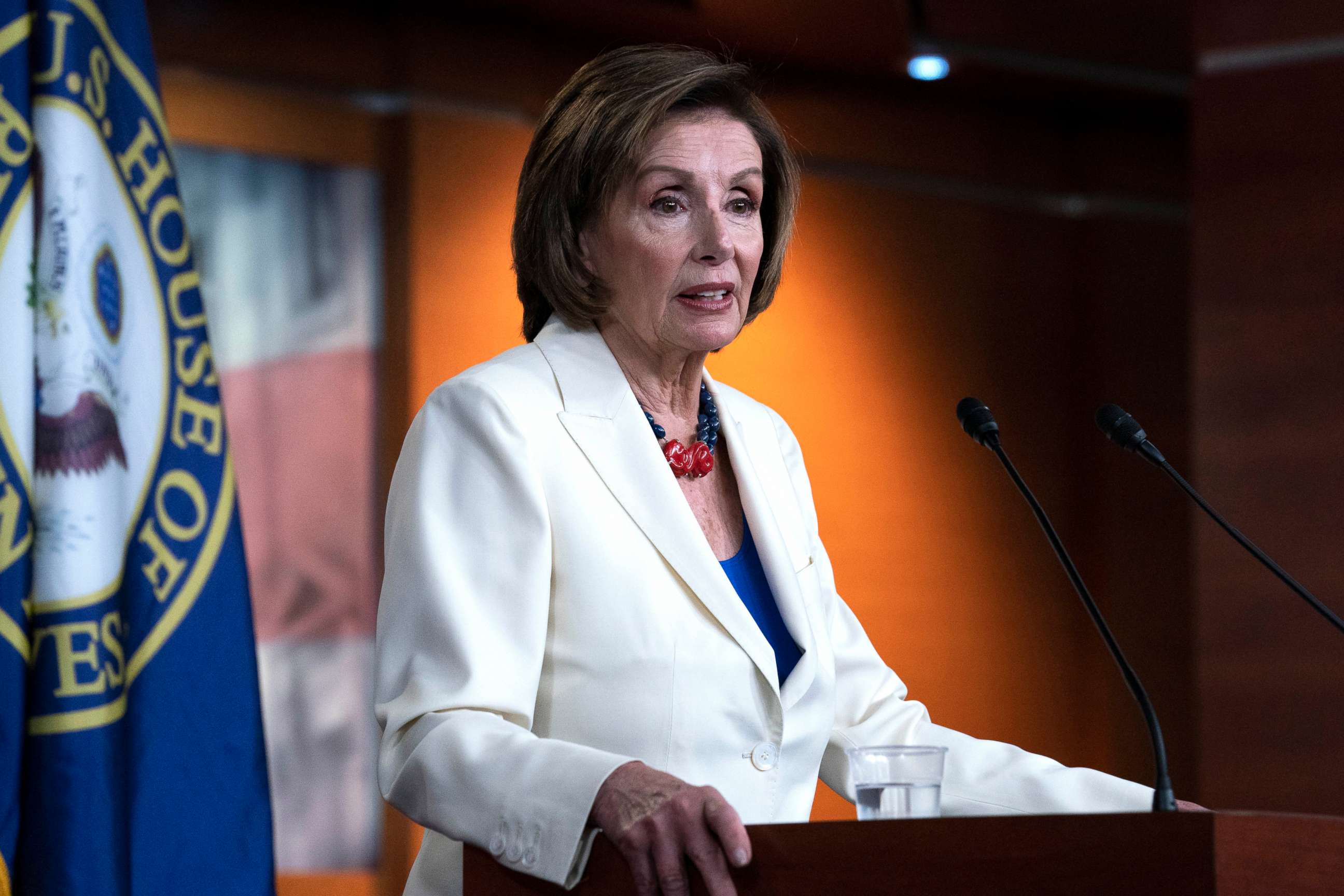McCarthy says he would testify about conversation with Trump during Jan. 6 Capitol assault
He was asked whether he would be willing if asked by an "outside commission."
House Minority Leader Kevin McCarthy, apparently for the first time, said Thursday he would be willing to testify about his conversation with then-President Donald Trump during the Jan. 6 Capitol assault if an independent, outside commission called him to do so.
"Sure. Next question?" he said in response to a reporter's question.
But he also took a swipe at what he called the "Pelosi commission" the day after the House passed a measure he opposed that would establish one to investigate the Capitol attack, claiming it is plagued by politics.
"This Pelosi commission that we tried to work on for quite some time," McCarthy said at a news conference outside the Capitol to mark Cuban Independence Day. "I asked Pelosi for one on Jan. 13. And she spent four months just playing politics with it."

McCarthy blamed Pelosi for "wasted time" -- despite the commission being a bipartisan effort and co-sponsored by Republican Rep. John Katko of New York, whom McCarthy had tasked with working out a deal. The minority leader emphasized how another Capitol Police officer died in April when a person rammed their car into the Capitol barricade as an excuse to not have a commission solely focused on Jan. 6.
"She didn't want to have the scope to do that as well," McCarthy said, trying to explain why he reversed positions after saying he would support the effort. "Even though Pelosi wasted all this time, you got the Architect of the Capitol given $10 million to study what we need done here to protect it. And then you've got the Justice Department, rightfully, does a much better job than we could ever do, arrested already 445 people probably more another 100 coming."
"I just think a Pelosi commission is a lot of politics," he added.

Asked if he were concerned that 35 Republicans broke ranks to join Democrats, McCarthy, in a show of confidence, dismissively replied, "not at all," claiming he expected the number to be higher.
House Speaker Nancy Pelosi, D-Calif., on Thursday kept a moderate tone when asked how Democrats would move forward with an investigation, given the odds that the bill passed by the House Wednesday will languish in the Senate without 10 Republican votes.
She had previously floated the possibility of the House investigating through committees, or potentially standing up a new select committee focused on the attack, but questioned by ABC News Congressional Correspondent Rachel Scott on Thursday, Pelosi deferred to Senate Democrats and their negotiations.

"We want them to bring it to the floor when it's ready. They may have some modifications in it, which, we'll see what they are," she said.
"I would like to have the trust that the Senate wants to find the truth as well. And let's just give them the chance to do that without hanging something over them about a timetable or other options that exist," Pelosi added, pointing out that it took several attempts to form the 9/11 Commission after the 2001 terror attacks because of some reluctance in Congress. "It takes time to negotiate."
Not having an independent commission would likely mean a select committee formed by -- and, as Pelosi reminded her colleagues Wednesday, disproportionately comprised of -- Democratic House members. Asked specifically about a select committee, Pelosi said it's her "overwhelming preference" to form the commission through a bipartisan vote.

"We're taking this one step at a time, but we've said what we want is a bipartisan commission. I don't want to weaken that position," she said. "The preference, not only preference, overwhelming preference is for bipartisanship."
The Senate is not expected to take it up until after its Memorial Day recess. Senate Minority Leader Mitch McConnell, who had previously been open to a commission, called the bipartisan proposal "slanted and unbalanced" -- giving Senate Republicans cover to vote against the legislation.
Even North Carolina Sen. Richard Burr, who is not seeking reelection and was one of seven Senate Republicans to vote to convict Trump for "incitement of insurrection," said he wouldn't support the proposed commission.




